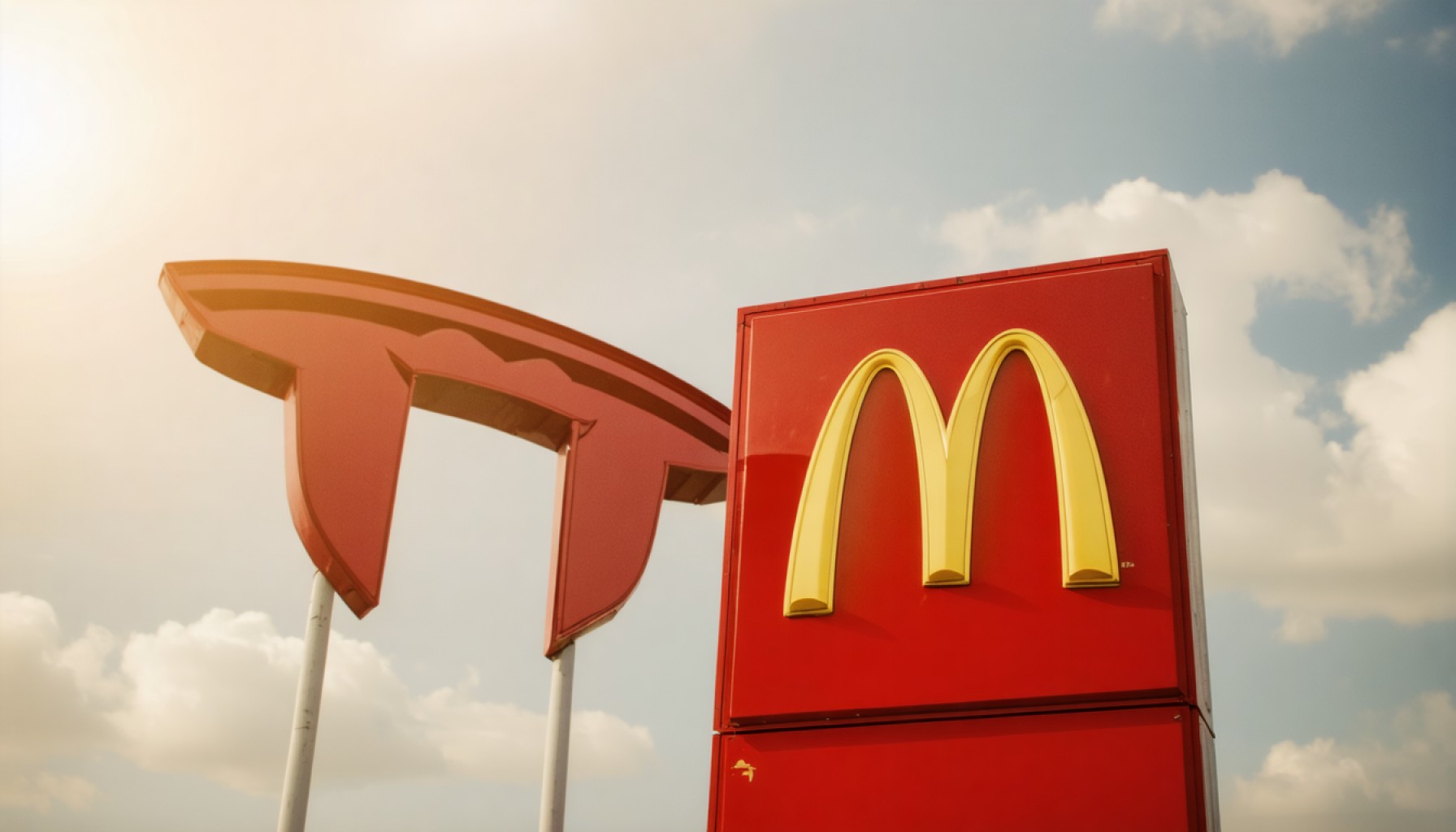- Multinational corporations are facing challenges due to a rise in economic nationalism, affecting global trade and corporate strategies.
- Political factors and national priorities now play a crucial role in corporate success, with policies like “America First” impacting trade routes.
- Companies such as Apple and Tesla face increasing scrutiny abroad and competition from strong local brands, particularly in China.
- Western brands, like McDonald’s in Europe and Tesla in Germany, struggle against local competitors amidst shifting political landscapes.
- Economic nationalism requires multinationals to adapt by considering geopolitical factors as part of their market strategies to remain competitive.
Once giants of globalization, multinational corporations such as Apple, Tesla, McDonald’s, and Domino’s are now navigating the treacherous seas of economic nationalism. The era of unfettered cross-border trade and universal market access is rapidly fading, replaced by a world where geopolitics hold as much sway as consumer demand.
The landscape has transformed: political allegiances and national priorities increasingly dictate corporate fortunes. This shift in dynamics surged past tipping points with significant policy changes, notably under former President Trump’s “America First” initiatives. Tariff threats and protectionist moves have realigned global trade routes and corporate strategies. Once seen as neutral market players, Western companies now face heightened scrutiny abroad, perceived as intertwined with their home country’s foreign policies.
Take China, for example — Western brands experiencing boycotts and declining sales, with Apple and Starbucks feeling the squeeze from savvy local competitors. Tesla — a former king of foreign EV brands — finds itself eclipsed by domestic powerhouse BYD, its sales plunging in this energized marketplace.
This trend extends beyond China. Across nations targeted by U.S. tariffs, a burgeoning patriotic dividend reflects growing support for domestic brands. In Europe, American staples like McDonald’s fumble against local favorites, while Tesla endures a sharp sales collapse in Germany amid political controversies.
Economic nationalism is rewriting the rulebook. Multinationals must now consider their geopolitical footprint as keenly as their market strategy. The message is clear: adapt to regional dynamics or risk being outmaneuvered by nimble local competitors. As the world fractures into distinct economic blocs, the path forward involves embracing a nuanced understanding of these complexities in an evolving global theater. The era of the borderless corporation may be over, but new opportunities await those agile enough to pivot.
Navigating Economic Nationalism: How Multinationals Can Thrive in a Fragmented World
How-To Steps & Life Hacks for Multinational Corporations
To succeed in this climate of economic nationalism, multinational corporations (MNCs) need a fresh playbook. Here are actionable steps to secure a competitive edge:
1. Localize Operations: Establish and strengthen local supply chains to minimize tariff impacts and comply with regional regulations.
2. Customize Offerings: Tailor products and services to specific national tastes. This builds brand loyalty and defends against domestic competitors.
3. Engage with Local Communities: Drive CSR (Corporate Social Responsibility) initiatives that resonate with regional priorities to improve brand reputation.
4. Monitor Geopolitical Trends: Stay informed about political developments in key markets to anticipate risks and opportunities.
5. Negotiate with Governments: Establish open lines of communication with local governments to gain valuable insights and navigate regulatory hurdles.
Market Forecasts & Industry Trends
As of 2023, the trend toward economic nationalism shows no signs of abating. The emergence of regional trading blocs (like the RCEP in Asia and increased EU protectionism) suggests a shift from globalization to regionalization. Analysts from McKinsey predict that localization will become a dominant strategy, with MNCs expected to invest in regional hubs.
Real-World Use Cases
1. Apple in India: Seeking to reduce its reliance on Chinese manufacturing, Apple has increased investment in India, aligning with the “Make in India” initiative and benefiting from the local market’s growth potential.
2. Tesla’s Gigafactories: Tesla’s strategy to build gigafactories in North America, Europe, and Asia illustrates the regionalization trend, aligning production with local market demands and policies.
Controversies & Limitations
Economic nationalism poses significant challenges, such as:
– Supply Chain Disruptions: Efforts to localize can lead to higher costs and inefficiencies in the short term.
– Regulatory Compliance: Navigating varying local rules can strain resources and slow product rollouts.
– Consumer Resistance: Rapid changes in operations might alienate a brand’s established global consumer base.
Security & Sustainability
Security of local operations against political upheavals and sustainability in sourcing and production grow crucial. Geo-redundant supply chains and investment in renewable energy are strategies to mitigate these risks.
Pros & Cons Overview
Pros:
– Increased market resilience through localized operations.
– Potential regulatory advantages and incentives in local markets.
– Enhanced brand loyalty through cultural alignment.
Cons:
– Initial setup costs can be prohibitive.
– Complexity of managing diverse operations across different geopolitical climates.
– Potential brand dilution with excessive localization.
Quick Tips for Multinational Corporations
– Invest in Market Research: Regularly update consumer insights to stay ahead of local trends.
– Foster Local Partnerships: Collaborate with local companies to bridge cultural and operational gaps.
– Build a Diverse Leadership Team: Ensure leadership reflects the multicultural nature of your markets for better adaptability.
As economic nationalism reshapes our world, McKinsey‘s insights into localization and Bain & Company‘s analysis of regional trends offer valuable guidance.
By strategically localizing their presence and reinforcing their commitment to regional communities, multinational corporations can not only survive but thrive in the era of economic nationalism.









